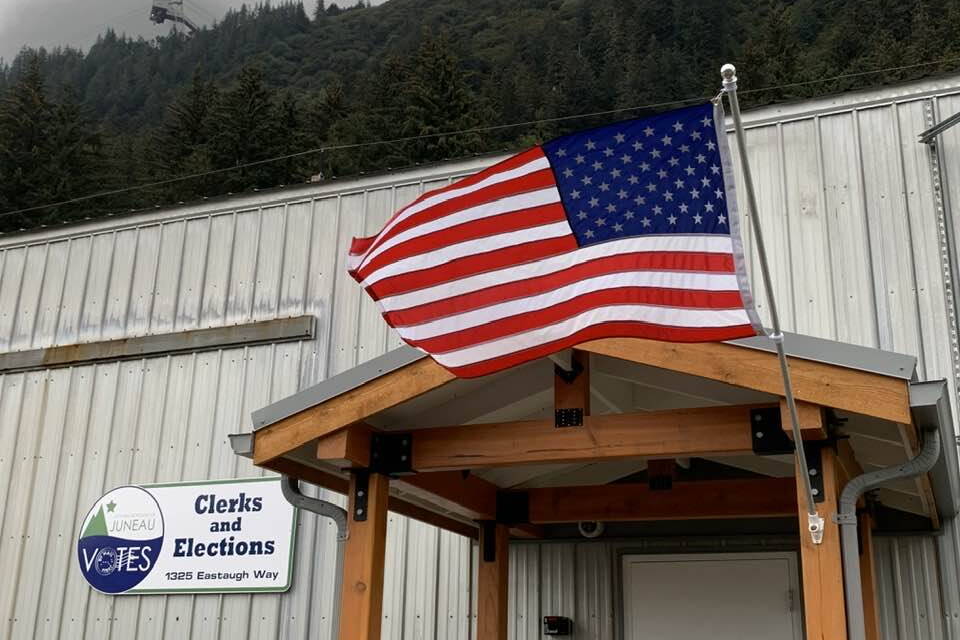As the Juneau Assembly addresses several looming economic issues, voters will decide three significant ballot propositions in the upcoming Oct. 1 municipal election, each with weighty financial implications.
Proposition #2, labelled “Ship-Free Saturday,” targets Juneau’s cruise industry and the local businesses and jobs it supports. If passed, the proposition would slash city revenues by some estimates up to $4 million annually and result in visitor-related job losses.
Propositions #1 and #3 are separate bond issues dealing with public safety and water infrastructure that total $22.75 million. Together they would increase, by approximately 60%, the municipality’s outstanding general obligation (G.O.) bond debt, estimated at about $36 million at year-end 2023.
As standalone proposals, these ballot issues require critical scrutiny, but they don’t exist in a vacuum.
In the past year, Assembly members have tackled major unanticipated expenditures to plug budget gaps at the Juneau School District and Bartlett Regional Hospital resulting in millions of dollars added to the city budget. Putting even more strain on city finances, the Assembly has continued to hoard tens of millions of dollars for new city offices and a new cultural arts center project rejected by voters. To date, the total cost of the cultural arts facility and its annual subsidy remain unknown.
Then last month a glacial outburst flooded 300 homes and hundreds of vehicles in the Mendenhall Valley. Recovery efforts are ongoing but mitigation of future floods will be expensive and may take years to complete. Some of the city’s costs for recovery and mitigation may be reimbursed, but future liability is unknown and will likely be substantial.
Voters should consider all of the above when voting on the three ballot propositions.
The “Ship-Free Saturday” petition proposes banning cruise ships with a capacity for 250 or more passengers on Saturdays and the Fourth of July, starting in 2025. It is particularly worrisome because it reduces the city’s annual revenues at a time when they are critically needed.
Passage of the proposition would send a message to the rest of the state that, apparently, Juneau is so flush with cash, we don’t need to worry about city finances. Clearly that is not the case.
Citizen task force recommendations for a daily five-ship limit and an industry agreement to cap cruise passengers have been adopted by the city and are now being implemented. These cooperative solutions should be allowed to work before considering additional measures.
Furthermore, the legality of blocking ships from visiting Juneau is questionable and will probably be tested in court. Acting prematurely by passing this proposition undercuts the city-sponsored collaborative process and will likely result in years of costly litigation.
Voters should reject this attempt to circumvent years of productive, good-faith efforts engaged in by the city and the industry that have mitigated industry impacts.
The other two ballot propositions are a tougher call.
Ballot Proposition #1 authorizes $12,750,000 in G.O. bond debt to fund infrastructure repairs, equipment replacements and technological improvements to Juneau’s deteriorating public safety communications system.
Ballot Proposition #3 will authorize $10,000,000 in G.O. bond debt to reconstruct the clarifier building at the Juneau Douglas Wastewater Treatment Plant.
Based on available information, it appears both are needed projects.
The question voters should ask themselves: Is the timing right and is this the best way to pay for them?
Both projects would replace aging systems and facilities that have been ignored for years. We all want public safety to have the best communications possible and our wastewater to be handled dependably. But why weren’t these issues addressed in the regular budget process before they became critical?
Surprising taxpayers with large projects at the crisis stage is not the answer.
CBJ has sufficient debt capacity for these projects, so that if passed, property taxes would not need to be increased. But if voters say “yes” this proposition will replace bonding capacity that could be used for flood mitigation or another unanticipated emergency. Saying “yes” would also make it more difficult for the Assembly to consider citizen property tax relief.
Until the full extent of the city’s financial obligations are known, voters should be wary of significantly increasing debt or reducing city revenues.
• After retiring as the senior vice president in charge of business banking for KeyBank in Alaska, Win Gruening became a regular Opinion Page columnist for the Juneau Empire. He was born and raised in Juneau and graduated from the U.S. Air Force Academy in 1970. He is involved in various local and statewide organizations. Columns, My Turns and Letters to the Editor represent the view of the author, not the view of the Juneau Empire. Have something to say? Here’s how to submit a My Turn or letter.

